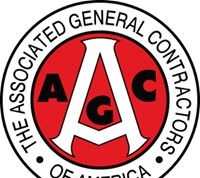Bureau Publishes Sample Letters to Mortgage Servicers to Guide Consumers
WASHINGTON, D.C. – January 8, 2014 – (RealEstateRama) — Today the Consumer Financial Protection Bureau (CFPB) released additional resources for consumers as part of its campaign to educate the public about the new protections provided by the Bureau’s mortgage rules. These new materials include sample letters that consumers can send to their mortgage servicers. The Bureau is publishing these educational materials in anticipation of the January 10, 2014 effective dates for its mortgage rules.
“Taking out a mortgage to buy a home is one of the biggest decisions a consumer can make,” said CFPB Director Richard Cordray. “We want to make sure that people are aware of their new protections so they have the knowledge to make sound decisions about their financial futures.”
Mortgage Rule in National News |
Mortgage Rule in Social Media |
The CFPB’s mortgage rules protect consumers by requiring that mortgage lenders evaluate whether borrowers can afford to pay back the mortgage before signing them up. The rules also establish new, strong protections for struggling homeowners, including those facing foreclosure. Under the rules, mortgage borrowers will be protected from costly surprises and runarounds by their servicers.
The Bureau is working with industry, housing counselors, and consumer groups to promote a smooth implementation of these rules. The Bureau has released many different educational materials to improve the public’s understanding of the new rules and their protections. These materials include:
- Sample Letters: The Bureau is releasing sample letters that consumers can use to find solutions to various problems with their mortgage servicers. The sample letters address such topics as:
- Requesting that a servicer correct errors: Consumers should use this letter template if they think their servicer has made an error. The instructions for the template describe what information to include in a letter to a servicer, how to identify the error, and include other tips. The template also tells consumers what to expect from the servicer and provides a general idea of the timeline of events once the letter is sent.
- Requesting information from a servicer: Consumers should use this letter template if they need information from their mortgage servicer. The instructions for the template describe what information to include in a letter to a servicer, examples of information requests, and include other tips. The template also tells consumers what to expect from the servicer and provides a general idea of the timeline of events once the letter is sent.
- Mortgage Tips: The CFPB is providing a number of different tips on new rights under the new rules for homebuyers and homeowners at every stage of the mortgage process—from taking out a loan to paying it back. The tips also include recommendations for troubled borrowers facing foreclosure.
- Answers to Consumer Questions: The Bureau provides answers to mortgage-related questions through AskCFPB, an interactive online tool designed to answer consumers’ most frequently asked questions in plain language.
- Consumer Tools: The Bureau’s website offers a tool to help consumers find local housing counseling agencies to answer their questions or address their concerns. Consumers that have an issue with consumer financial products or services, such as a mortgage, can also submit a complaint.
- Factsheets on the Rules: The CFPB offers a factsheet with an overview of the new consumer protections in the Bureau’s mortgage rules. The CFPB also offers a summary of the new procedures to facilitate borrowers’ access to foreclosure avoidance options.
The CFPB has also published a reference guidefor housing counselors and others who interact with consumers who are struggling with paying their mortgage. The CFPB wants to ensure that housing counselors and others understand the new federal protections so that borrowers can pursue all possible options to avoid losing their home to foreclosure. The CFPB is also offering training on the rules for housing counselors.
Print copies of the mortgage materials will be available to be ordered in seven languages: Spanish, Tagalog, traditional Chinese, Haitian Creole, French, Korean, and Vietnamese. English language materials can be found at consumerfinance.gov/mortgage. The Bureau will continue to develop and produce materials to educate consumers about the new mortgage protections.













